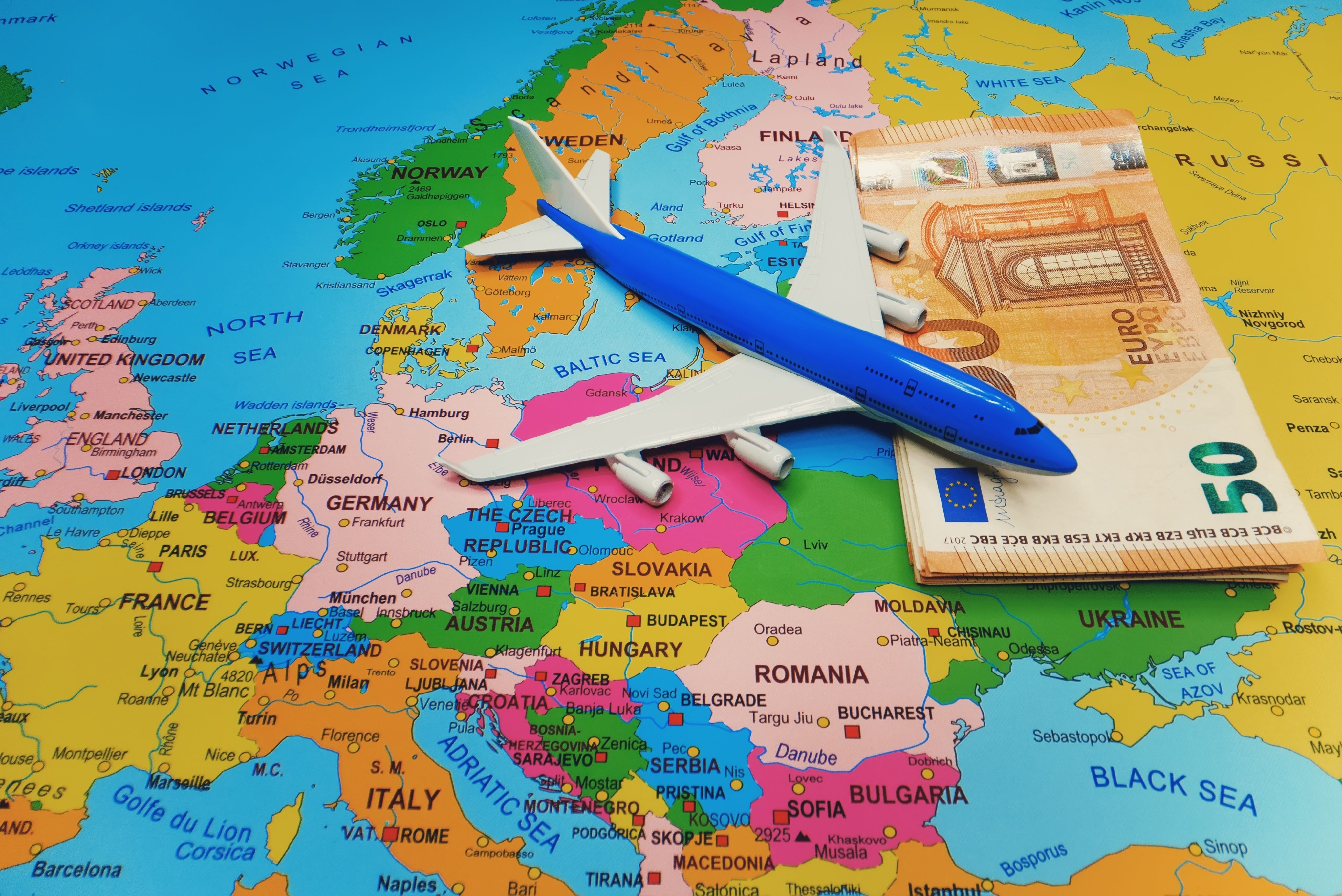Travelers heading to Wales next year may notice a small surcharge on their accommodation bills, as the Welsh government imposes a new tourism tax on overnight stays.
In a joint statement to the SENEDD, the Welsh government stated, “This Bill proposes giving local authorities the power to introduce a visitor levy, which will be a small charge paid by people staying overnight in visitor accommodation. The levy will raise additional funds for local authorities to support the long-term sustainability of our tourism industry.”
Tourism tax is usually a small percentage of the bill or a set rate per person, such as Italy’s €1 to €5 per day tourism tax and Spain’s 0.60 euros to 3.50 euros per night and person. Each country’s tax rate is different. The country with the highest tourism tax rate per person is Bhutan, which charges a whopping $200 per person.
Numerous countries around the globe have approved proposals for a tourism tax to be applied to accommodations and popular destination sites to help raise revenue for the support of the tourism industry’s “long-term sustainability,” as the Welsh government has stated.
While many are in favor of the added tax to accommodation costs, there are those who oppose the implementation of any type of tax.
Andrew RT Davies, leader of the Welsh Conservatives in the Senedd, said: “We’ve been absolutely clear from the start that this policy is the wrong one for Wales. “A tourism tax will risk jobs at a time when businesses are being clobbered by Labour, it will impose red tape”, he said, adding: “Our tourism industry should be nurtured by the Welsh government, not hamstrung by new taxes.”
Related
Italy Proposes Tourist Tax Increase Of Up To €25 To Combat Overcrowding
Severe overcrowding in Italy has led to the government proposing a sizable tourist tax in the most popular cities in the country.
2024 Witnessed Several Countries Imposing Tourism Tax: 2025 Will Be No Different as Popular Tourist Destinations Strive for Sustainable Tourism
Venice, Italy: 5 euros, new Tourist tax (day-trip fee) to enter the city
In 2024, several countries initiated tourism tax on accommodations, fees to enter the country if you’re a tourist, and day trip fees to popular tourist destinations.
In Venice, Italy, a ‘day-trip’ fee was imposed for visitors arriving in the region, and a higher rate was set for travelers booking last-minute arrivals into accommodations and sites.
In February, Indonesia’s popular island destination of Bali imposed a tourism tax of approximately £7.35.
And, in October of this year, New Zealand officially announced the increase of their ‘entry fee’ into the country for tourists arriving; tripling to NZ$100, up from the original, NZ$35.
2025, will also see several countries tacking on tourism tax, entry fees, and day-trip fees.
The UK approved a new system called Electronic Travel Authorization (ETA): visitors from the US, Europe, Australia, and Canada will be required to apply for permission and pay to enter the country.
The EU is also slated to require a fee for entry into the country in 2025, mandating that non-EU citizens traveling from outside the Schengen zone will be required to pay €7 and complete an application to enter countries within the Schengen area.
For those traveling by plane to Thailand in 2025: the country’s official government office is set to charge a travel tax of £6.87 per person for those entering the country by airplane. The fee is due to be implemented by mid-year.

Related
Amsterdam’s New Tourist Tax: Everything Confirmed So Far
Amsterdam raised its tourist tax, becoming the world’s costliest destination. Here is what to know (and how to explore Amsterdam on a budget).
Know Which Countries Are Charging Fees Ahead of Your Arrival so You’re Not Caught off Guard
Toy airplane model on the map of Europe
If you’re not familiar with tourist tax, or even restaurant ‘cover charges,’ when you receive your bill for either, you may think you’ve been charged erroneously.
Since each country imposes a different type of tourism tax, and each charges a different rate, knowing ahead of time which countries are charging fees will assist you so you’re not caught off guard.
Per Condé Nast Traveller, the following countries currently impose tourist tax, entry fees into their countries, and day-trip fees:
- Austria: the cost of a tourist tax is typically added to your accommodation bill, and is around 3.2 percent in Vienna
- Belgium: in Brussels, the tourist tax is mainly below £3.50 and is added to your accommodation bill, but it varies from city to city
- Bhutan: until September 2027, the Daily Sustainable Development Fee in Bhutan has dropped to $100 for adults
- Bulgaria: tourist tax in Bulgaria varies on destination and hotel standard, but it is usually below £1.30
- Caribbean Islands: most of the Caribbean islands charge tourist tax, and the price ranges depending on the island – in St Lucia, for example, it is around $3 to $6, whereas in the Dominican Republic, it is higher but usually incorporated into package holiday and airline fees
- Croatia: the cost of a tourist tax in Croatia depends on the season you are traveling in and where you are staying, but the average is around 1 Euro per adult traveler per day.
- Czech Republic: in Prague, tourist tax typically costs around CZK 50 per night (around £1.71).
- France: here, the tourist tax is based on the level of accommodation, and ranges from less than one Euro for campsite stays to more than 10 Euros for five-star hotel stays
- Germany: it varies from city to city – in Berlin, the standard tourist tax is five percent of the accommodation price
- Greece: the price you pay in Greece depends on the standard and size of your accommodation. It shouldn’t be more than £3.50 per night
- Hungary: travelers should expect to pay four percent of the cost of accommodation per night in Budapest
- Indonesia: from Wednesday 14 February 2024, travelers will have to pay 150,000 rupiahs (£7.60) upon entering Bali
- Japan: If you travel to Japan, expect to pay 1,000 yen (about £5.50) in tourist tax
- Malaysia: in 2023, the cost of tourist tax across Malaysia is roughly £1.70 per night
- Portugal: charges tourist tax in 13 cities, including Lisbon and Porto. The cost is €2 per night in the high season (April to October)
- The Netherlands: the amount of tourist tax differs per municipality. Amsterdam is one of Europe’s most expensive places for tourist tax – in 2024, the rate was increased from seven percent to 12.5 percent of the accommodation price
- Switzerland: the price of tourist tax here varies depending on the destination, and it ranges from about CHF 2 (£1.81) to CHF 7 (£6.34) per person per night
- Slovenia: again, the rate changes from destination to destination (it is higher in cities than in more rural areas), but generally the cost is around €3
- Spain: several cities in Spain have recently decided to raise the price of tourist tax, and other cities are in discussions about following suit. In Barcelona, the fee is €4 (£3.48), whereas in the Balearic Islands, the fee is between €1 (87p).
- USA: when traveling to the USA from the UK, visitors need to apply for an ESTA (Electronic System for Travel Authorization), which is a type of visa allowing travelers to stay in the country for up to 90 stays. It is valid for two years. The cost of an ESTA is $21 (about £17).


